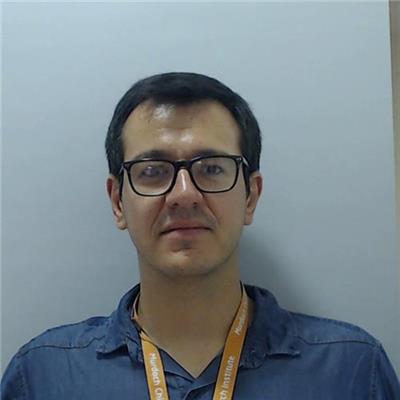Muscle Research
Understanding the extremes of muscle performance – from elite athletes to children with muscle disease.
Skeletal muscle makes up approximately 40 per cent of our body weight and is a highly versatile tissue that can adapt to everyday stresses like exercise training. Small genetic changes can enhance how our muscle works, which explains why some people are naturally better at certain sports. However, other changes can cause defects in the way our skeletal muscle functions resulting in disease.
The Muscle Research group is dedicated to understanding genetic variations that impact the extremes of muscle performance, from elite athletes to children with muscle diseases.
A major focus of our group is on ACTN3 – the Gene for Speed.
We were the first to show that one in five people worldwide do not make ACTN3 protein due to a genetic change in the ACTN3 gene (R577X). We now know that ACTN3 is vital for elite sprint performance. In fact, having ACTN3 is essential for an Olympic-level sprinter!
ACTN3 also affects muscle diseases. We showed that not having ACTN3 slows disease progression in Duchenne muscular dystrophy – an inherited muscle disease that affects one in 6,000 boys. Our research on ACTN3 and other sports genes continues through our leadership in international consortiums like Athlome Consortium.
At the other end of the spectrum are children with muscle disease.
We are part of the National Muscle Disease Bio-databank where we collect and store samples such as blood and clinical information from patients with muscle disease. The blood sample is used to create induced pluripotent stem cells (iPSCs) that can be turned into skeletal muscle in the laboratory. These patient samples allow us to study the impact of their disease on the immune system and to generate models of the patient’s disease in a dish.
Our team consists of laboratory scientists, genetic counsellors, nurses and neurologists who work together to improve our understanding of the complexity of muscle performance and disease.
More information
Group Leaders

Team Leaders


Group Members





Our projects
ACTN3 R577X and human metabolic diseases
One in five people worldwide are completely α-actinin-3 deficient due to inheriting two copies of the 577X null variant. We showed that ACTN3 577X underwent positive selection during recent human evolution, mediated by shifts in muscle energy utilisation towards efficient oxidative metabolism that enabled modern humans to better survive cold and famine. We recently confirmed this when we observed that α-actinin-3 deficient people maintain a higher body temperature during cold exposure. We are now exploring how ACTN3 577X impacts weight gain, obesity and the development of diabetes in modern society where diets are high in calories and sedentary lifestyles are common.
ACTN3 R577X and human muscle performance
α-Actinin-3 deficiency reduces muscle mass and strength in the general population and increases the risk of falling in the elderly. We have shown that α-actinin-3 deficiency alters muscle mass regulation and the adaptive response to exercise training, immobilisation and denervation. It also protects against muscle mass loss caused by glucocorticoid use. The ability to preserve muscle mass against various muscle-wasting conditions may be another reason behind the positive selection of the ACTN3 577X variant. We are now investigating how ACTN3 influences the muscle growth response to testosterone and other anabolic steroids and the impact of this in elite sports.
National Muscle Disease Bio-databank (NMDB)
The National Muscle Disease Bio-databank (NMDB) at Murdoch Children’s Research Institute was established in 2022 and collects patient samples and clinical information from children with genetic muscle disease from across Australia. Using these precious patient samples our team aims to expedite discoveries from the laboratory into clinical trials to improve outcomes for children with genetic muscle disease.
Participants provide clinical information and samples that can be accessed by researchers worldwide to deepen our understanding of disease mechanisms and unlock the key to potential treatments. Researchers analyse patient blood for disease-specific biomarkers and to create induced pluripotent stem cell lines (iPSCs) that are used to model the patient’s disease in a dish.
Creating an immune cell atlas of patients with chronic muscle disease
The immune system is vital for proper repair in healthy skeletal muscle. In chronic muscle diseases, like Duchenne Muscular Dystrophy, repeated cycles of muscle breakdown prolong inflammation leading to the replacement of muscle with scar tissue/fibrosis and fat.
Our goal is to create an immune cell atlas of inflammatory muscle diseases in children. To do this we will use a blood sample from patients to profile the immune cells altered in various inflammatory muscle diseases. This will enable us to identify new immune-therapeutic targets (immunotherapies) that will aim to dampen the immune response and facilitate proper muscle repair in children with chronic muscle diseases.
Using induced pluripotent stem cells (iPSCs) to model muscle disease in a dish
Induced pluripotent stem cells (iPSCs) provide an exciting tool for the generation of human tissues in the laboratory. We use iPSCs generated from the blood of patients with a known muscle disease to grow skeletal muscle cells in the laboratory. These patient-specific iPSCs enable us to generate an unlimited amount of muscle tissue in a dish, without the need of an invasive muscle biopsy, providing an abundance of muscle cells that we use to help us understand development, model disease, and test new therapies. This work will improve our understanding of disease mechanisms and identify new treatments for children with muscle diseases.
Funding
- National Health and Medical Research Council (NHMRC)
- Medical Research Future Fund (MRFF)
- Johnstone Foundation
- National Stem Cell Foundation
- Muscular Dystrophy Australia
- Gillin Boys Foundation
- Vanguard
- World Anti-Doping Agency (WADA)
Collaborators
- Professor Yannis Pitsiladis
- Professor Stewart Head, Western Sydney University
- Professor Oliver Friedrich, Friedrich Alexander University
- Professor Peter Curry
- Professor Christina Mitchell
- Professor Catriona McLean
- Professor Jon Oakhill, St Vincents Institute
- Dr George Tachas
Featured publications
Yang N, MacArthur D, Gulbin JP, Hahn AG, Beggs A, Easteal S, North KN. ACTN3 genotype is associated with human elite athletic performance. American Journal of Human Genetics 2003, 73:627-631.
Macarthur DG. Seto JT, Raftery JM, Quinlan KG, Huttley GA, Hook JW, Lemckert FA, Kee, AJ, Edwards MR, Berman Y, Hardeman EC, Gunning PW, Easteal S, Yang N, North KN. Loss of ACTN3 gene function alters mouse muscle metabolism and shows evidence of positive selection in humans. Nature Genetics 2007;39:1261-1265.
Seto JT, Roeszler KN, Meehan LR, Wood HD,Tiong C,Bek L, Lee SF, Shah M, Quinlan KGR, Gregorevic P, Houweling PJ, North KN. ACTN3 genotype influences skeletal muscle mass regulation and response to dexamethasone. Science Advances, 2021
Wyckelsma VL*, Venckunas T*, Houweling PJ, Schlittler M, Lauschke VM, Tiong CF, Wood HD, Ivarsson N, Paulauskas H, Eimantas N, Andersson DC, North KN, Brazaitis M, Westerblad H. Loss of α-actinin-3 during human evolution provides superior cold resilience and muscle heat generation. The American Journal of Human Genetics 2021; 108 (3), 446-457. *equal authorship
Houweling PJ, Coles CA, Tiong CF, Nielsen B, Graham A, McDonald P, Suter A, Piers AT, Forbes R, Ryan MM, Howden SE, Lamande SR, North KN. Generating an iPSC line (with isogenic control) from the PBMCs of an ACTA1 (p.Gly148Asp) Nemaline Myopathy patient. Stem Cell Research, 2021; 54
